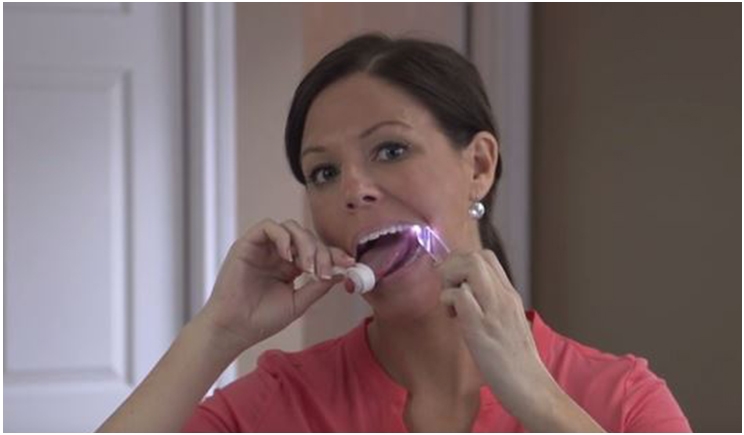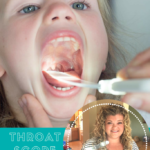
Oral Cancer Facts and Stats
April is Oral Cancer Awareness Month, when our attention turns once again to a cancer that continues to increase each year. It’s true that five-year survival rates have improved, but they aren’t getting better because of earlier discovery or innovative screening techniques. Instead, these rates correlate with the increase in HPV-related oral and, in particular, oropharyngeal cancers that are more sensitive to treatment modalities, elevating survival rates.
The collection of research data from the national cancer registries once predicted that by 2020, HPV-related oropharyngeal cancers would surpass HPV-related cervical cancers as the anatomical site with the highest burden of HPV-related cancers. Well, we have far surpassed this prediction. Again, based on data from national registries, HPV-related oropharyngeal cancer surpassed HPV-cervical cancer in 2015!

Being Informed About the Risks of HPV is Uncommon
The biggest concern is that the majority of the North American population is unaware of the risk this very common virus presents. There is limited knowledge of the human papillomavirus being the culprit behind this escalation. How common is HPV? The Centers for Disease Control and Prevention (CDC) estimate that it is so common, almost every American adult will have an infection at some point in his or her lifetime.
For the majority of the population that has a normal functioning immune system, the virus will be cleared from the body often without awareness or recognition, similar to the common cold virus. For those who incur a persistent infection with a high-risk strain of the virus, such as HPV-16, there is an increased risk for transformation from an infection to malignancy.
Other Risk Factors of Oral Cancer
The CDC further reports that HPV is believed to be the cause of 70% of oropharyngeal cancers in the United States. Smoking and alcohol historically have been the two most well-known etiologic pathways. Many of our patients feel that if they are non-smokers and non-drinkers, they won’t have an inherent risk for oral and/or oropharyngeal cancer. This mindset needs to be eliminated, and education needs to abound.
Oral Cancer Screening is Our Responsibility as a Dental Professional
As a dental professional, our professional standards of practice require us to perform an extraoral and intraoral soft tissue examination, which includes an oral cancer screening, at least once a year on all adult patients. The oral cancer screening is not an option. It is our responsibility. Furthermore, educating our patients about the importance of self-examination at home and initiating a self-referral is a supportive and strong step toward earlier discovery. This was the impetus behind the launch of the North American “Check Your Mouth” campaign.
Check Your Mouth Campaign
The North American launch of the public campaign has been a long awaited aspiration of the Oral Cancer Foundation and specifically of its founder, Brian Hill, a stage IV oral cancer survivor. Throat Scope, the world’s first all-in-one illuminated tongue depressor, is the ideal tool to facilitate effective self-examinations for the public campaign. The partnership between the Oral Cancer Foundation and Throat Scope has created an organically driven movement gaining momentum across North America.
Through education provided on the Check Your Mouth website, our patients will have an elevated awareness of what to look for and what shouldn’t be ignored, reinforcing the need for self-referral and examination by a dental professional. The hope and objective of the campaign is to eliminate the long period between regularly scheduled professional care and the opportunity for assessment of an abnormal finding.
Regular Professional Oral Cancer Screenings are Essential
This by no means detracts from the importance of regular professional oral cancer screenings. In fact, it reinforces their importance. The key to saving lives is the earliest possible discovery of something abnormal. When an oral lesion is discovered in the early or localized stage, five-year survival rates are impacted significantly, accompanied by an improved quality of life for survivors. Oral and oropharyngeal cancers are still found at later stages primarily due to a lack of public awareness and a lack of routine opportunistic screening programs being employed.
It Only Takes FIVE Minutes!
Providing our patients with five life-saving minutes in the form of a professional visual and tactile oral cancer screening examination is first and foremost the most important step to earlier discovery of an abnormal lesion. The next step is directing them to invest five life-saving minutes in performing a self-examination of their face and neck and inside their mouth on a monthly basis. It is through this familiarity that a new finding will be most readily recognizable. A persistent finding, being anything that does not resolve within two weeks, should be further examined by a dental professional.
The Check Your Mouth website provides an educational video illustrating a step by step self-examination of the face and neck and inside the oral cavity and visually accessible areas of the oropharynx. It also provides an overview of what to look for, complemented by a visual gallery of normal versus abnormal findings. The often subtle, lifesaving symptoms are outlined along with risk factors. The recommended tools are available for purchase through the website as well.
Together, we can make positive inroads in ensuring that we are doing our part to save lives and prevent the later-stage discovery of oral cancer.
About the Author

Ms. Jones is an international award-winning speaker and was selected to join Dentistry Today’s Leaders in CE for the tenth consecutive year in 2020. She is also an Advisory Board Member for Holland Healthcare. While preparing to present her research on HPV-related oropharyngeal cancer to her national association, a family member received a diagnosis of late-stage HPV tonsillar cancer, succumbing to the disease 16 months later. Ms. Jones proudly partners with the Oral Cancer Foundation in conveying the urgent need for changing the way in which we screen for oral cancer to meet the needs of today’s population. She can be reached at via email at jjones@jo-annejones.com.
Disclosure: Jo-Anne Jones is a contributor to the project management team for the Check Your Mouth campaign. She also serves as an advisor to Throat Scope and is involved in the North American launch of Throat Scope into the dental community.
Read the original article HERE.
Never miss a blog!
Subscribe to get updates on new blogs from Throat Scope.

